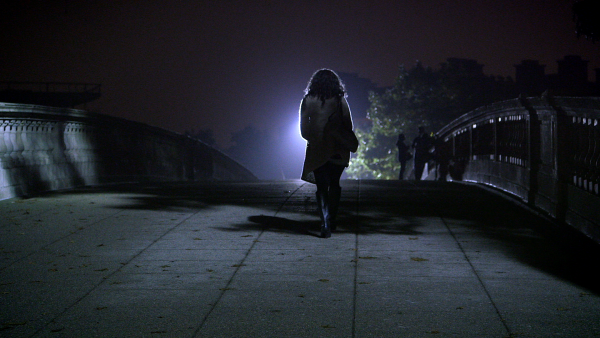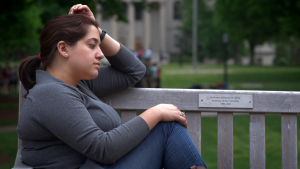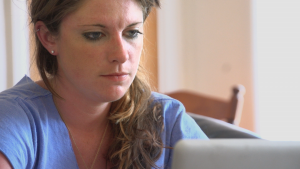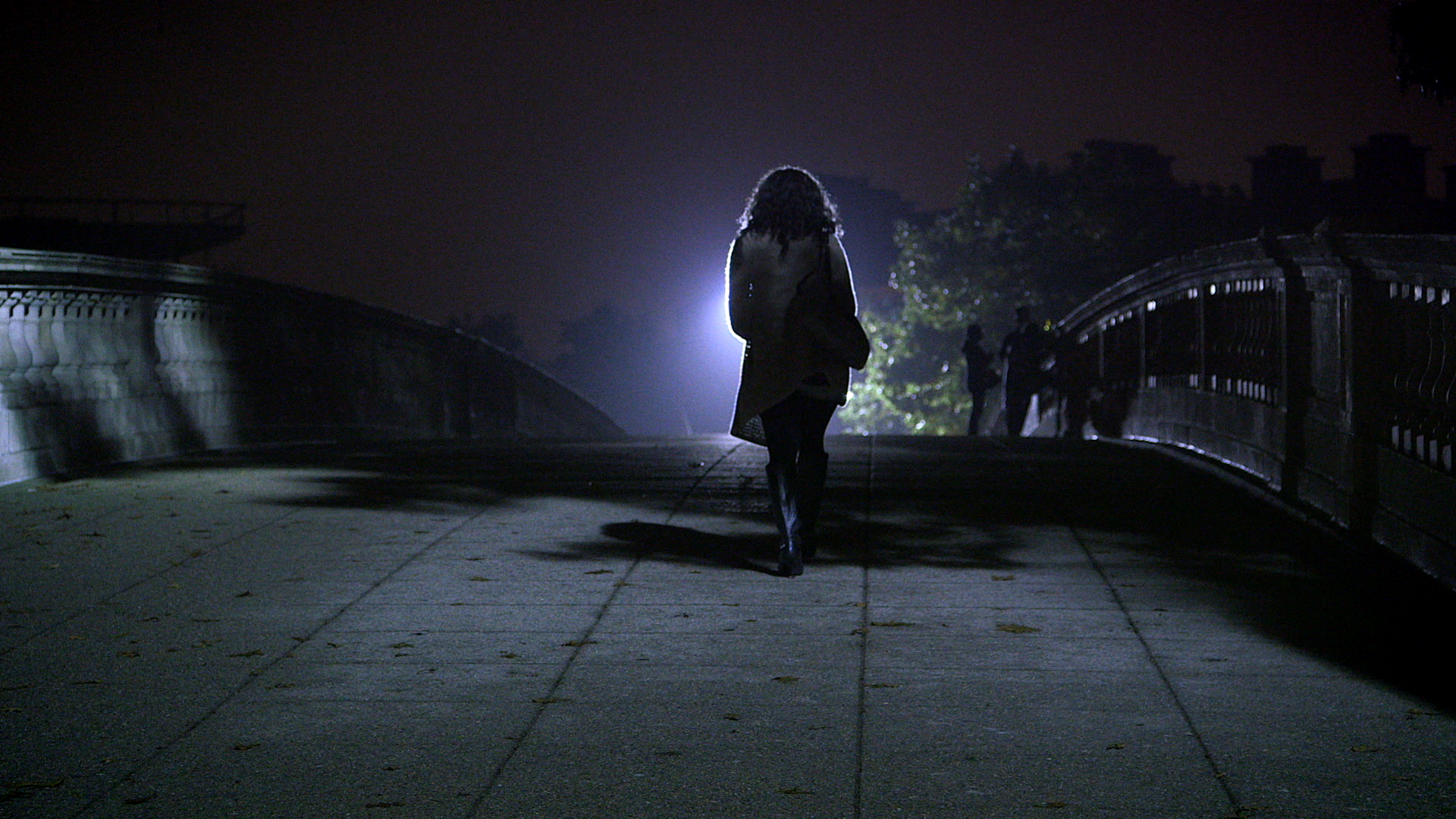
Director Kirby Dick’s documentary feature, “The Hunting Ground,” chronicles student activists’ passionate and persistent campaign against rape and sexual assault on college campuses. For over a decade, Dick has been perturbed by America’s culture of sexual violence — long rampant and ignored in universities across the nation. Many of his previous films, including his Academy-Award nominated documentaries “Twist of Faith” and “The Invisible War,” have also dealt with this epidemic. The Stanford Daily’s Ena Alvarado sat down with Dick, who was in the Bay Area promoting the release of “The Hunting Ground,” to discuss everything from his latest work to the issue of sexual assault at American universities.
The Stanford Daily (TSD): Your film “Twist of Faith” dealt with sexual abuse. “The Invisible War” was about sexual violence in the military. Now “The Hunting Ground?” Why is this an issue that you care about?
Kirby Dick (KD): Partly anger. Sexual assault — there’s such a tendency in this culture to deny it exists or to deny the prevalence of it. This is not something we want to think — as a species — that we do. That it’s as common as it is. I think documentaries are really a good form to address this. Most of the time you read about this and think, well who’s telling the truth, those kinds of things. When you hear the voices of survivors, when you hear what they went through, on campuses, their assault, then when they came forward, their schools didn’t support them. Blamed them — betrayed them, really. It allows you to understand the issue in a much different way. It’s anger.
TSD: How was this film different from your past films?
KD: Well, I’ve made 11 feature documentaries. My first five, up until and through “Twist of Faith” — which was nominated for an Academy Award, about sexual abuse — were more psychological examinations of subjects. In that film I sort of took a turn. It started out that way, but once I started screening it, I realized the political impact it had. After that I made a decision that, for my subsequent films, I wanted to have both the psychological aspect to it but also have the political aspect to it. That was a turning point.
TSD: During your travels, did you see the issue treated differently at different colleges?

The most surprising thing was to see how every college and university was disincentivized to address the problem. The incentives are very much in favor of keeping it covered up, as opposed to transparency, taking responsibility, and addressing the issue. And that’s a problem in every institution. I’m sure it’s worse in some institutions than in others, but it’s a problem at all institutions. I think it’s important to understand that, obviously more than 100 schools are under investigation by the federal government, but just because they’re under investigation, it doesn’t mean that sexual assault is more of a problem there. It actually might be less, because at least, they’re under investigation because somebody came forward and reported — or multiple people came forward and reported. That’s the first step towards addressing this issue — it’s people feeling comfortable enough to step up and report. It’s where you don’t see schools under investigation at all — schools reporting zero sexual assault that actually may be worse.
TSD: What kind of reactions have you gotten from the schools?

KD: It’s interesting. One thing we do know is that there are many, many people working as mid-level administrators who know this is a problem and have been trying to address the problem for many years, and really haven’t gotten support from the top. I think we’ve been embraced by those people and by students on those campuses. We have, I think, well over 70 screenings already scheduled, and we’ve had over 1,000 inquiries from schools. William and Mary was the first school that the film played at, and the president was there. That’s a great sign. Other presidents, sort of predictively, have reacted very defensively. They don’t need to. In fact, they should do just the opposite. We know it’s a problem on every school. It’s a problem on their school. They should be stepping up and admitting that. And saying, “I’m here to address this problem, and you can hold me accountable for it.” Not attacking the film. That has happened. Fortunately, I’m hopeful. Obviously, no one in higher education, no college president wants the assaults to happen.
TSD: One of the most troubling statistics I saw in the movie was that about 88 percent of the victims don’t report sexual violence. Why do you think this is, and what could be some steps to improve this?
I think shame is a part of it. The way colleges and universities have traditionally responded to people coming forward has dissuaded survivors from coming forward. Almost all the survivors in our film, who came forward to report, were advised by their caregivers, by their friends, not to report, because it would only make things worse. And in many cases, that was true. The school has to have systems in place that are very supportive of survivors. They have to have investigative and adjudicative processes in place. Very robust, very professionalized. These are difficult crimes to investigate. So they can investigate these crimes and were the perpetrator is found responsible, expel him from campus. If people feel they’ll be treated fairly, they will start coming forward. In that case, you would also have a much more robust system to protect the accused. It’s better for all the students involved.
TSD: I’m sure you read the “Rolling Stone” article on the University of Virginia. Some details about the alleged assault weren’t really accurately described. As a director, how do you ensure that what you’re documenting is verifiable?
KD: A very good question. Extensive fact-checking, obviously. All of our major cases are supported by more than a thousand papers of documents. One thing that’s substantially different from our film as opposed to the “Rolling Stone“ piece is that all our subjects are named. And you see them. I think that makes a huge different. We were very careful to vet the subjects, to vet their stories, and this was done over a long, long period of time.
I do want to say something about the UVA story. There’s no question there were problems with the reporting. But we have to keep in mind that this is one story at one school and sexual assault is happening at all schools, tens of thousands of times annually. That is the real story. If we focus on UVA and lose focus on this national story, we’ll never focus on the issue. It will become a distraction. And that will be very, very unfortunate. I think we’ve moved beyond that. I think there were a few months when there was an excessive focus on that, but I think we’re past that.
TSD: The film deals heavily with the fraternity Sigma Kappa Epsilon. What are your thoughts on fraternity culture?
Fraternities have a very important role to play in higher education. There’s no question that fraternity members graduate with higher GPAs, they have more successful careers. There are very positive things about fraternities. But the reality is that in schools where there is a significant amount of greek life, it is very probable that one, two, or three houses at those schools will have a problem with sexual assault. It’s very easy to find out. You could find out [at] Stanford. It would be interesting for you to start asking, are there houses that have a reputation of sexual assault? You may find, very quickly, one or two houses where that is. Certainly we found that at many other schools. The thing that struck me about that, was that, if the students know, and you can find out so quickly, then you know the administration knows. And the administration isn’t doing anything about it.
TSD: After your experiences filming this documentary and dealing with this issue on college campuses, where do you feel most of the responsibility lies to change the culture? The university? The students? The media?

KD: That’s a good question. Certainly not the students. Students, when they’re 17, 18 years old, going to school, they should have a right to go to a place that’ll give them a safe education. What they’ve done is nothing short of heroic in terms of bringing — the student activists in the country — this issue to national attention. It really shouldn’t be coming from the students to do this. I think that many institutions play a role in this. The military. The media. I think the media has, over the last three or four years or maybe last decade, played a lead role in this issue, and for the most part, I applaud them. The media and the way they’ve covered this issue. And I think that colleges and universities can play a leading role too. Obviously, when people are of college age, it’s a very formative period of their lives, and I think that if colleges and universities address this issue, that would impact the entire population. It’s in all aspects in society.
“The Hunting Ground” is now playing at the Embarcadero Cinemas in San Francisco and the California Theatre in Berkeley.
Contact Ena Alvarado at enaalva ‘at’ stanford.edu
